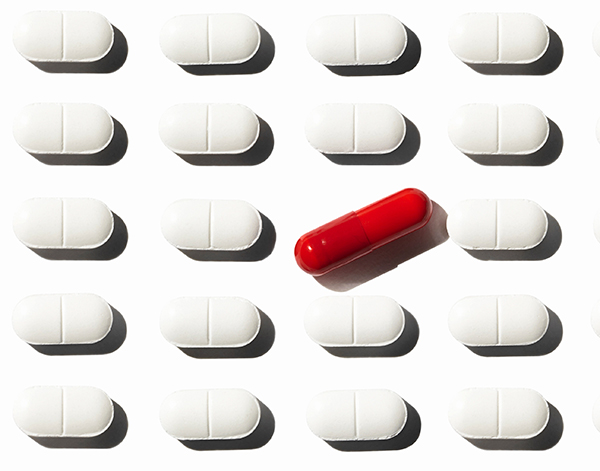Despite effective vaccines, the COVID-19 pandemic continues on. Indeed, experts are closely monitoring the emergence of new variants and continuous waves of new cases around the globe. To this end, the need to develop highly effective antivirals remains of critical importance. Now, a team from the University of North Carolina (UNC) at Chapel Hill—leaders in the coronavirus field—is testing a new route of delivery for the intravenous drug remdesivir. They hope to develop a pill form of the COVID-19 treatment that’s given to half of all hospitalized patients with the disease.
This work is published in Science Translational Medicine, in the paper, “Therapeutic treatment with an oral prodrug of the remdesivir parental nucleoside is protective against SARS-CoV-2 pathogenesis in mice.”
The current form of remdesivir must be given intravenously. But an oral version could extend its reach and benefits to patients outside of the hospital, said Tim Sheahan, PhD, assistant professor in the department of epidemiology at UNC Chapel Hill’s Gillings School of Global Public Health. “Oral antiviral medications have the potential to shorten the duration of disease, potentially diminish transmission and prevent hospitalization if taken early enough,” Sheahan said.
The authors demonstrated “the in vitro antiviral activity and in vivo therapeutic efficacy of GS-621763, an orally bioavailable prodrug of GS-441524—the parent nucleoside of remdesivir, which targets the highly conserved virus RNA-dependent RNA polymerase.”
GS-621763 exhibited antiviral activity against SARS-CoV-2 in lung cell lines and two different human primary lung cell culture systems. The drug was also potently antiviral against Middle East Respiratory Syndrome CoV (MERS-CoV).
In addition, the effects observed after oral administration of GS-621763 translated to dose-dependent antiviral activity in mice infected with SARS-CoV-2. It reduced viral load and lung pathology; treatment also improved pulmonary function in a COVID-19 mouse model.
“We saw protective effects, like reduced lung damage, viral load in the lungs, and improved lung function in infected mice, when we administered the drug at 12 hours or even at 24 hours after infection in mice,” said Alexandra Schafer, PhD, assistant professor of epidemiology at the UNC Gillings School of Global Public Health.
The researchers described findings showing that the oral version of remdesivir was as effective as molnupiravir (another oral antiviral) at reducing disease in mice. Further, the new drug compound can be adapted into a pill designed to halt coronaviruses before they multiply and cause severe disease.
In early 2020, Ralph Baric, PhD, professor of microbiology and immunology at UNC Chapel Hill, and Gilead Sciences identified remdesivir as a potenial treatment for COVID-19. For nearly two years, remdesivir has been used in hospitals to treat very sick patients with COVID-19.
While the drug has shown mixed results in clinical studies, it’s been surprisingly effective in treating patients early in the disease. The results of using remdesivir early in the course of disease in outpatients were dramatic. A three-day course resulted in an 87% lower risk of hospitalization and death.
Additional study is needed of the compound’s safety and effectiveness, but the new study opens the door for remdesivir to take a place among the growing number of oral COVID-19 treatment options.
“Oral drugs that can be formulated as pills have potential to make a big impact on reducing the disease burden caused the COVID pandemic,” said David Martinez, PhD, a postdoctoral fellow in the Baric Lab. “People can safely take a round of pills at home while in isolation, and reduce community spread.”



